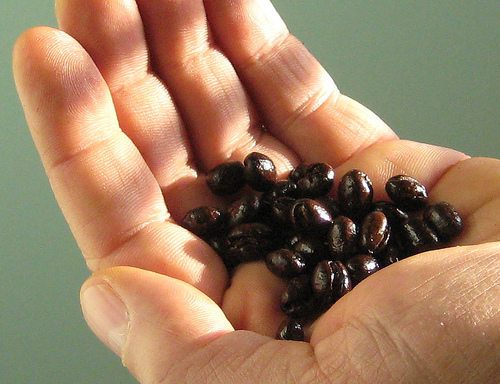savor
Mindful Eating, Mindful Life
savorthebook.com
Read More About
Mindful Eating
Mindful Living
Weight Loss
Exercise
Meditation
How Does Coffee Affect Our Health?

We spend fourty billion dollars a year on coffee in America. Is it helping or harming us? Recent observational studies suggest that moderate coffee consumption may be healthy.
Coffee is often lumped in with alcohol, tobacco and lack of exercise as an unhealthy lifestyle choice, but studies from the 80’s to present reveal a lack of negative side effects, and some potential health benefits, from moderate coffee consumption. Research suggests that coffee consumption may be associated with a lower risk of Parkinson’s disease, type 2 diabetes, gallstone disease, and liver cancer or cirrhosis. A recent study, published by Harvard School of Public Health researchers in May, evaluated men’s risk of developing lethal prostate cancer in relation to their coffee consumption.
The findings: “Men who regularly drink coffee appear to have a lower risk of developing a lethal form of prostate cancer…What’s more, the lower risk was evident among men who drank either regular or decaffeinated coffee.”
Coffee contains many healthy compounds that act as antioxidants, reduce inflammation, and help regulate insulin.
Some people may want to steer clear of coffee or switch to decaf—among them, women who are pregnant, people who get the jitters from caffeine, and people who are having a hard time controlling their blood pressure or blood sugar.
The key for the rest of us is to consume coffee in moderation—up to six 8-oz cups a day appears to be safe—and be aware of the cream, sugar and syrup we add to our beverages. These extra sugary components can turn our once-healthy cup of coffee into a recipe for weight gain, and in turn, can increase our risk of developing type 2 diabetes.
Coffee relates to each of our bodies differently, so let's drink mindfully and reflect on how we feel. For some people, drinking coffee from afternoon onward may keep them awake at night. If you aren’t sure how coffee affects you or how much you consume, it may be helpful to log your coffee - or general caffeine consumption- for at-least 1 week.
Share your findings with us on the Savor Wall.
For more in-depth information on coffee in relation to specific diseases, visit this interactive image from the Harvard School of Public Health.
Image by CoffeeDetective from the Creative Commons.
SAVOR: Mindful Eating, Mindful Life. Copyright © 2026 by Thich Nhat Hanh and Lilian Cheung. All Rights Reserved. Please review our terms of use
Website design
Mary Pomerantz Advertising




